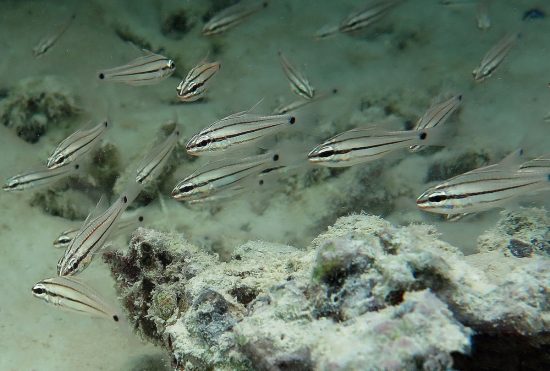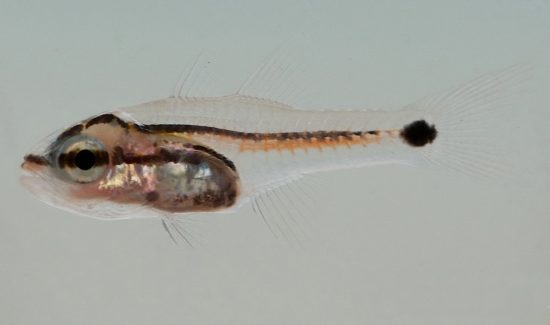



Scientists have discovered that baby reef fish possess an internal
magnetic compass that helps them find their way home at night.
Publishing their findings in the Current Biology journal, the research
team had studied how cardinal fish are able to swim home in total
darkness.
“This study is the first clear demonstration that reef fish larvae
possess magnetic senses to orient them at night. Up until now, we only
knew adult birds, marine mammals, sharks and boney fish have this
in-built sense of direction,” said Professor Mike Kingsford, from the
ARC Center of Excellence for Coral Reef Studies at James Cook
University.
Working with colleagues from Germany, the scientists collected cardinal
fish that were less than a centimetre long at One Tree Island on the
Great Barrier Reef (GBR). The fish were then tested on their
orientation in total darkness using the same magnetic field as the GBR.
Normally, the fish orientated to the southeast. However, when
researchers changed the magnetic field clockwise by 120 degrees, all
the fish changed the direction they swam in, turning further west
instead.
“Our results show that larvae can use their magnetic senses to point
them in the right direction when it's night time,” said Professor
Kingsford.
After being hatched from eggs, larvae reef fish disperse in the ocean
for days or months. Then, they will either return home or find another
reef to settle in, and then usually remain there for the rest of their
lives.
“The study tells us these baby fish actually have brains. They know
where they are going and are strong swimmers. As a result, they have
some control over the reef they end up on. It's not just about being
led by the currents,” said Professor Kingsford.
See here for more information
Link to the study
 Mares
Mares 24th December 2016
24th December 2016